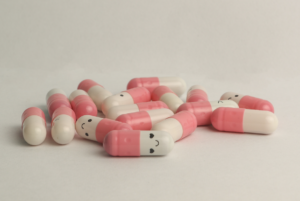 When we think of dangerous poisons, items like rat poisoning or insecticides often come to mind. But according to the American Association of Poison Control Centers (AAPCC), the vast majority of poisoning cases involve common medications or household products – items that we use every day.
When we think of dangerous poisons, items like rat poisoning or insecticides often come to mind. But according to the American Association of Poison Control Centers (AAPCC), the vast majority of poisoning cases involve common medications or household products – items that we use every day.
Managing an incident of potential poisoning greatly depends on the amount of exposure and the type of substance that has been ingested. If you ever suspect any kind of poisoning, US Poison Control is here to help. Do not wait for symptoms to appear. Support is available online or by phone at 1-800-222-1222. Both options are free, expert, and confidential.
The top 5 toxicity queries made to US Poison Control each year are:
- Analgesics – pain relievers like acetaminophen (the active ingredient in Tylenol) and Ibuprofen (found in Advil and other products).
- Household Cleaning Products – including dish and laundry detergents (keep those colorful pods out of reach).
- Cosmetic and Personal Care Products – lipsticks, lotions, and other cosmetics, along with products containing fluoride, hand sanitizers and mouthwashes containing alcohol.
- Sedatives, Hypnotics and Antidepressants – of particular concern are benzodiazepines, which are sedatives like Valium and Xanax.
- Foreign Objects – think toys, silica gel packets, pen caps, glow sticks, button batteries (they can leak chemicals), sharp objects like a pin or nail, and magnets (which can damage tissue when they adhere to each other inside the body).
If you ever suspect a poisoning, remember these general guidelines:
- Swallowed poisons: Don’t eat or drink anything before calling the Poison Control Center. Do not try to make the person throw up or give them syrup of ipecac.
- Inhaled poisons: Get to fresh air right away. Open doors and windows to ventilate the area.
- Poisons on the skin: Remove contaminated clothing and rinse the skin with water for 10 minutes.
- Poison in the eye: Flush the eye for 15 minutes using a large cup filled with lukewarm water held 2-4 inches from the eye.
- AND be sure to call 911 immediately: if a person stops breathing, collapses, or has a seizure.
